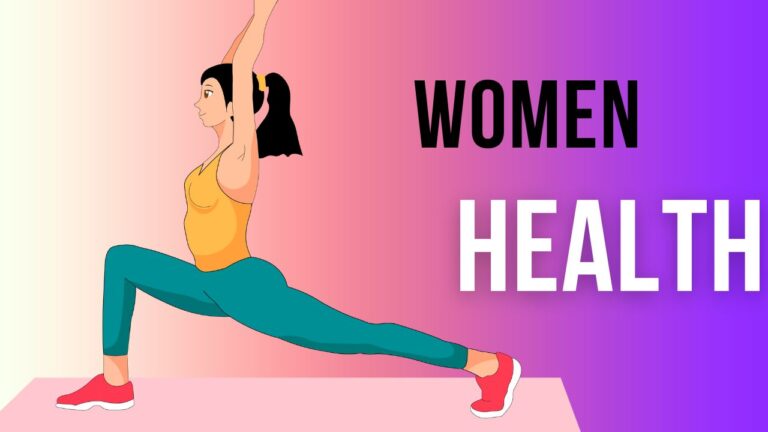Preventive Health Measures Every Man Should Embrace for a Stronger Future
Taking care of your health isn’t just about reacting when something goes wrong—it’s about preventing issues before they arise. Men often overlook routine health practices, but simple preventive measures can make all the difference in the long run. Here’s how to get started on a healthier, happier life.
Regular Health Check-Ups: Your First Line of Defense
One of the most important steps you can take for your health is scheduling regular check-ups. Even if you feel great, a visit to your doctor can help identify potential problems early. Early detection is the key to better outcomes in managing health conditions.
Why it matters: Many conditions, like high blood pressure or early-stage diabetes, don’t show obvious symptoms. Regular screenings and blood tests can catch them before they become serious.
How to do it: Make it a habit to see your doctor at least once a year, or more frequently depending on your age and risk factors. These visits are a great way to stay on top of your health and ensure you’re doing everything you can to prevent future issues.
2. Eating a Balanced Diet: Fuel Your Body Right
The food you put into your body is the fuel it runs on. A balanced diet packed with nutrients gives you the energy to live your best life and helps prevent chronic diseases like heart disease, diabetes, and obesity.
Why it matters: A diet rich in fruits, vegetables, lean proteins, and whole grains is vital for maintaining healthy weight, good cholesterol levels, and strong bones. You’re giving your body the building blocks it needs to stay strong.
How to do it: Try to focus on eating whole, unprocessed foods. Include a variety of colors on your plate, from leafy greens to berries. Limit processed sugars and unhealthy fats. It’s all about making sustainable, nutritious choices.
3. Stay Active: Exercise for a Healthier You
Exercise isn’t just about staying in shape; it’s about staying healthy. Regular physical activity strengthens your muscles, bones, heart, and mind, helping you feel better both physically and emotionally.
Why it matters: Physical activity lowers your risk of chronic conditions like heart disease, diabetes, and arthritis. Plus, it boosts your mood and energy levels, making everyday tasks easier.
How to do it: Aim for at least 150 minutes of moderate-intensity exercise each week. Whether it’s walking, swimming, biking, or lifting weights, find something you enjoy. Consistency is the key, and even small steps add up to big benefits.
4. Avoid Tobacco & Limit Alcohol: Protect Your Vital Organs
Tobacco and excessive alcohol consumption are linked to a host of health issues, including cancer, liver disease, heart disease, and lung problems. Cutting back can dramatically improve your long-term health.
Why it matters: Smoking and excessive drinking increase your risk for conditions like stroke, heart disease, and cancers. By eliminating or reducing these habits, you’re giving your organs the chance to thrive.
How to do it: If you’re a smoker, consider quitting with professional help. For alcohol, stick to the recommended guidelines—no more than two drinks per day. Your liver, lungs, and heart will thank you!
5. Manage Stress: Your Mind Is Just as Important as Your Body
Men often carry stress silently, but it’s just as important to manage mental health as it is to care for physical health. Chronic stress can impact everything from your heart health to your sleep.
Why it matters: Ongoing stress can contribute to high blood pressure, heart disease, digestive issues, and anxiety. Learning to manage stress can improve your quality of life and your physical health.
How to do it: Practice stress-relieving techniques like meditation, deep breathing exercises, or journaling. Taking breaks, spending time with loved ones, or enjoying hobbies can also help you unwind and recharge.
6. Prioritize Sleep: Recharge for a Healthier Life
Good sleep is the foundation of good health. It’s when your body heals, recovers, and rejuvenates. Sleep impacts everything from your immune system to your mood and energy levels.
Why it matters: Inadequate sleep can lead to weight gain, reduced mental clarity, and an increased risk of chronic conditions like heart disease and diabetes. Quality sleep ensures that your body is functioning at its best.
How to do it: Aim for 7 to 9 hours of restful sleep each night. Create a relaxing bedtime routine, limit screen time, and make sure your sleep environment is quiet and comfortable. Your body will thank you in the morning!
7. Stay Hydrated: Drink Water for Vitality
Water is essential for your body’s day-to-day functioning. It helps with digestion, temperature regulation, and nutrient absorption. Staying hydrated can improve your energy levels, focus, and physical performance.
Why it matters: Dehydration can cause fatigue, headaches, and poor physical performance. It can also lead to kidney issues and impact your skin health.
How to do it: Aim to drink at least 8 glasses of water a day. If you’re active or live in a hot climate, you might need more. Carry a water bottle with you as a reminder to drink throughout the day.
8. Practice Safe Sex: Protect Your Health and Well-being
Practicing safe sex is essential for preventing sexually transmitted infections (STIs) and protecting your future health. STIs can have serious long-term effects, so it’s important to be mindful of your sexual health.
Why it matters: Many STIs are asymptomatic, which means you may not know you have one unless you get tested. Some infections can lead to infertility or chronic conditions if left untreated.
How to do it: Always use protection, such as condoms, during sexual activity. Stay up to date on regular STI screenings and have open conversations with your partners about sexual health.
9. Stay Up-to-Date with Vaccinations: Shield Yourself from Illness
Vaccines are an important preventive measure that protect you from various diseases, including the flu, pneumonia, and even certain types of cancer. Keeping up with vaccinations is a simple way to protect your health and prevent the spread of disease.
Why it matters: Vaccinations help prevent serious illnesses that can have long-term effects. In addition to keeping you healthy, they also protect those around you—especially those who are more vulnerable.
How to do it: Check with your doctor to make sure you’re up to date on recommended vaccines, like the flu shot, shingles vaccine, and any travel-related vaccines if applicable.
10. Monitor Your Health: Know Your Numbers
Understanding key health indicators like blood pressure, cholesterol levels, and blood sugar is vital for managing your health. These numbers provide insight into your overall health and help detect issues before they become severe.
Why it matters: Knowing your health metrics allows you to make informed decisions and take action if something is off. Regularly monitoring these indicators can prevent heart disease, stroke, and other chronic conditions.
How to do it: Get regular blood tests and health screenings to monitor your numbers. If anything is out of range, work with your doctor to make lifestyle changes or start a treatment plan.
Conclusion: Your Health, Your Responsibility
Taking preventive measures is one of the most powerful ways to protect your health. By staying active, eating well, managing stress, and seeking regular check-ups, you’re ensuring that your body has the tools it needs to stay strong and healthy for years to come. Start small, stay consistent, and remember: your health is in your hands.
Author: Kamrul



